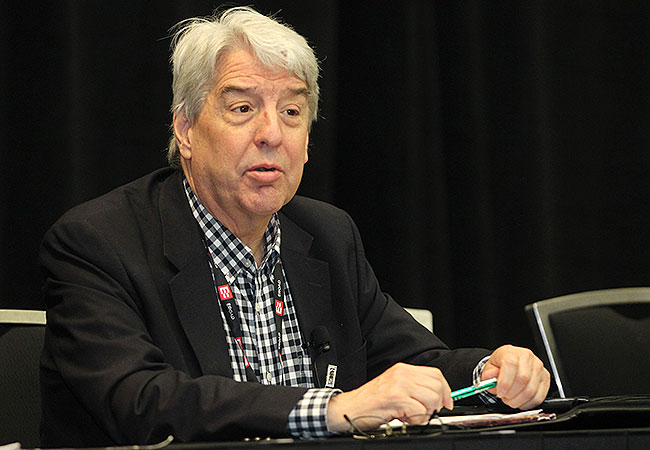Senior Reporter
Marijuana Legalization Poses Perplexing Issue for Industry

AUSTIN, Texas — There is a great unknown for how federal and state enforcement authorities as well as trucking companies will come to grips with the proliferation of state laws permitting medical and recreational use of marijuana, a panel of trucking executives said.
“The legalization of marijuana is an issue that is not really an if, but a when,” said Abigail Potter, manager of safety and occupational policy for American Trucking Associations. “This really has opened up the accessibility of marijuana, and has really started to break down the stigmas of marijuana use.”
Potter and two other trucking executives spoke at an Oct. 28 session at ATA’s 2018 Management Conference & Exhibition.
Currently, 31 states and the District of Columbia have medical marijuana statutes on the books while nine states and the District have laws permitting the recreational use of the Schedule 1 drug, Potter said.
The developments have had implications for truckers understanding the scope of the new laws, and also the effect on employment and business issues, she said.
For the industry, interstate truck drivers are outright not permitted to use marijuana, much less have certain levels in their system while driving.
In addition, federal laws do not permit trucking companies to transport marijuana, nor do law enforcement officers currently have equipment to field test drivers for marijuana, other than taking drivers into their stations and conducting blood tests if they appear impaired at roadside, Potter said.
“Right now, there really isn’t a test that can be done to detect actual influence for marijuana,” she said. “That’s a problem.”

Colorado Motor Carriers Association President Greg Fulton by John Sommers II for Transport Topics
In Colorado, one of the states that allows medical and recreational use, there were 500,000 medical permits issued before recreational use became law, Colorado Motor Carriers Association President Greg Fulton said.
“Little did we know at that time how much pain our young people were in,” he said, tongue-in-cheek.
Fulton said there has been a proliferation of marijuana dispensaries in the state, one located even directly across the street from his office. “In Denver right now, we have more dispensaries than we have McDonald’s, Starbucks or Taco Bells combined,” Fulton added. “We’ve been challenged.”

Canada's Jonathan Blackham by John Sommers II for Transport Topics
In Canada, where the recreational use of marijuana was made legal effective Oct. 17, officials are seeing the immediate impact on the trucking industry, said Jonathan Blackham, director of policy and public affairs for the Canadian Trucking Alliance.
“It’s just been a huge game changer for us,” Blackham said.
“Going back three years, whenever we had questions related to drug and alcohol or cannabis they were almost exclusively within the context of U.S. DOT regulations,” he added. “Now, we look back over those days as the easy times, the golden days.”
As a result of the new law, the problem for Canadian truck drivers traveling into the United States has become even more complex, Blackham said.
He said the legalization has created a patchwork of rules and regulations in Canada’s 10 provinces and three territories.
“On the work front, what some have been focusing on is trying to strengthen the connection between recent use and likely impairment,” Blackham said.


